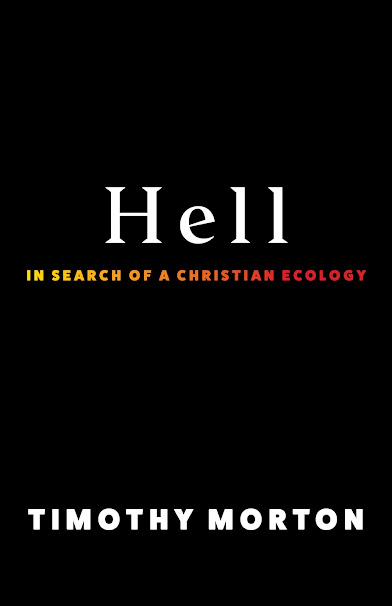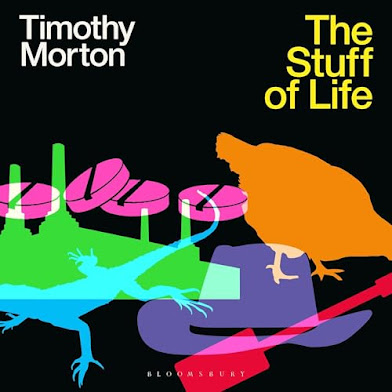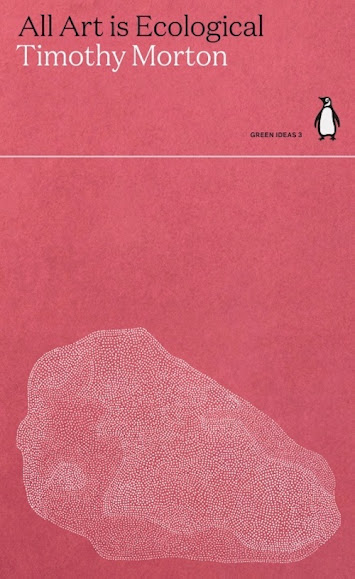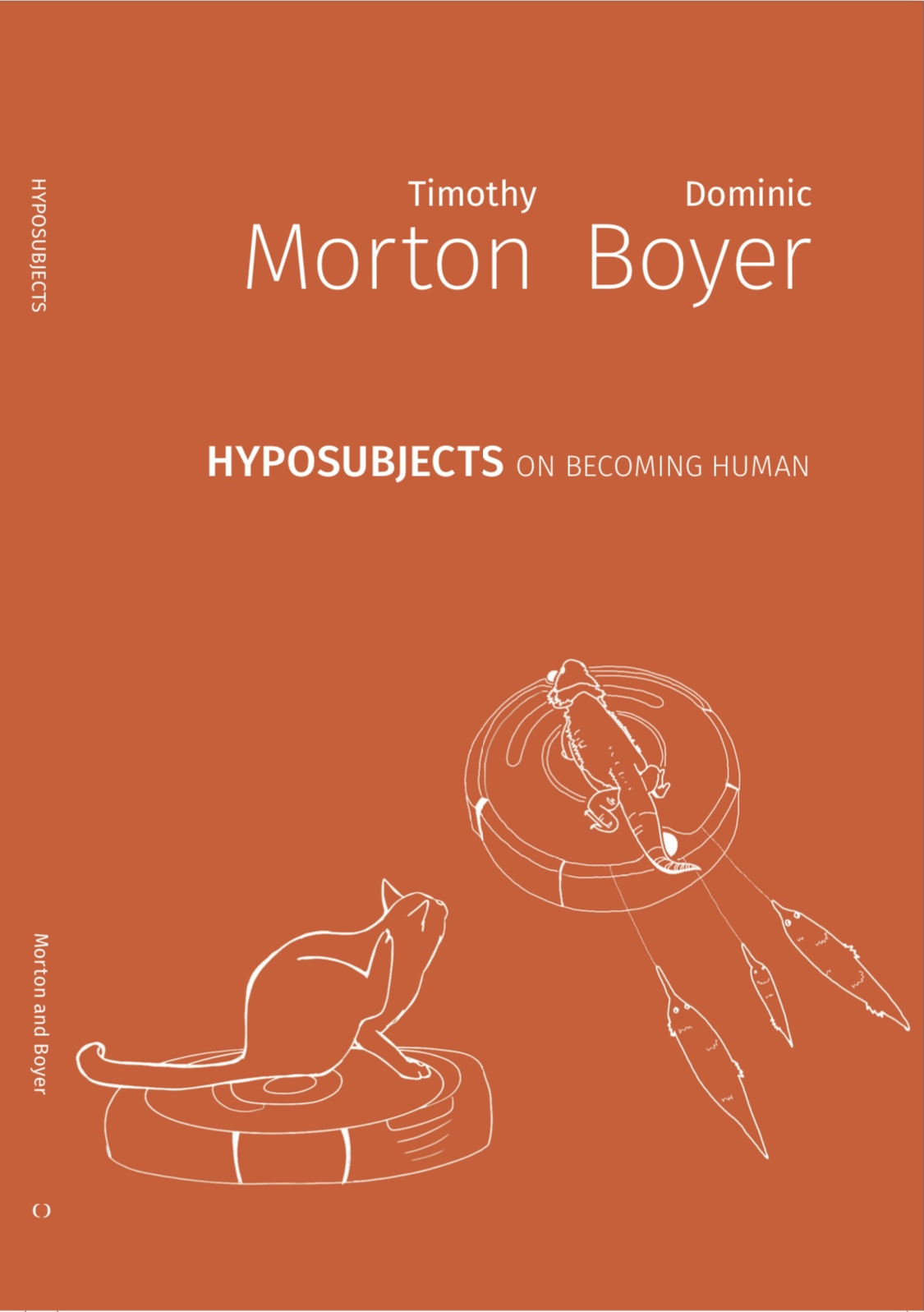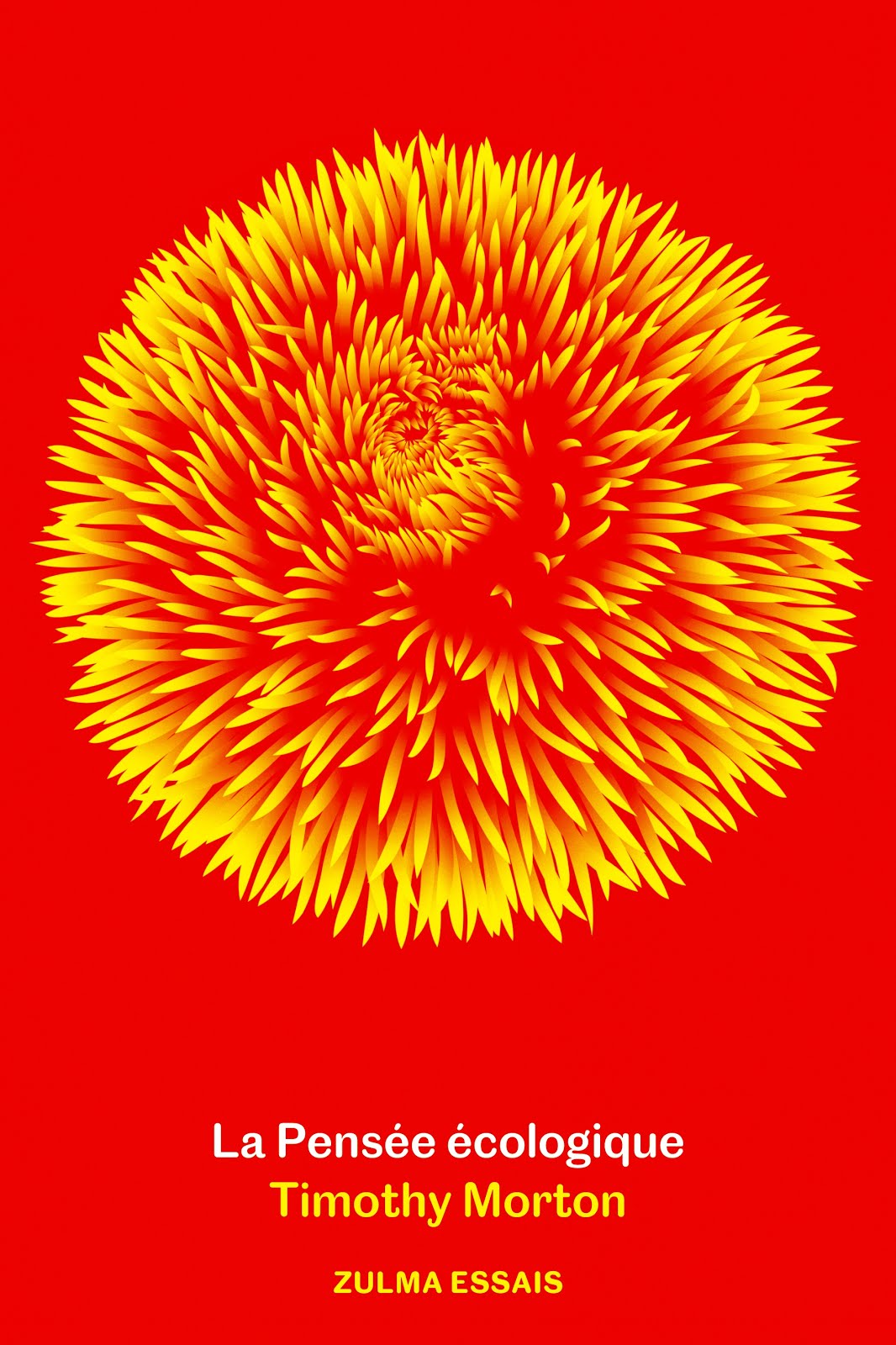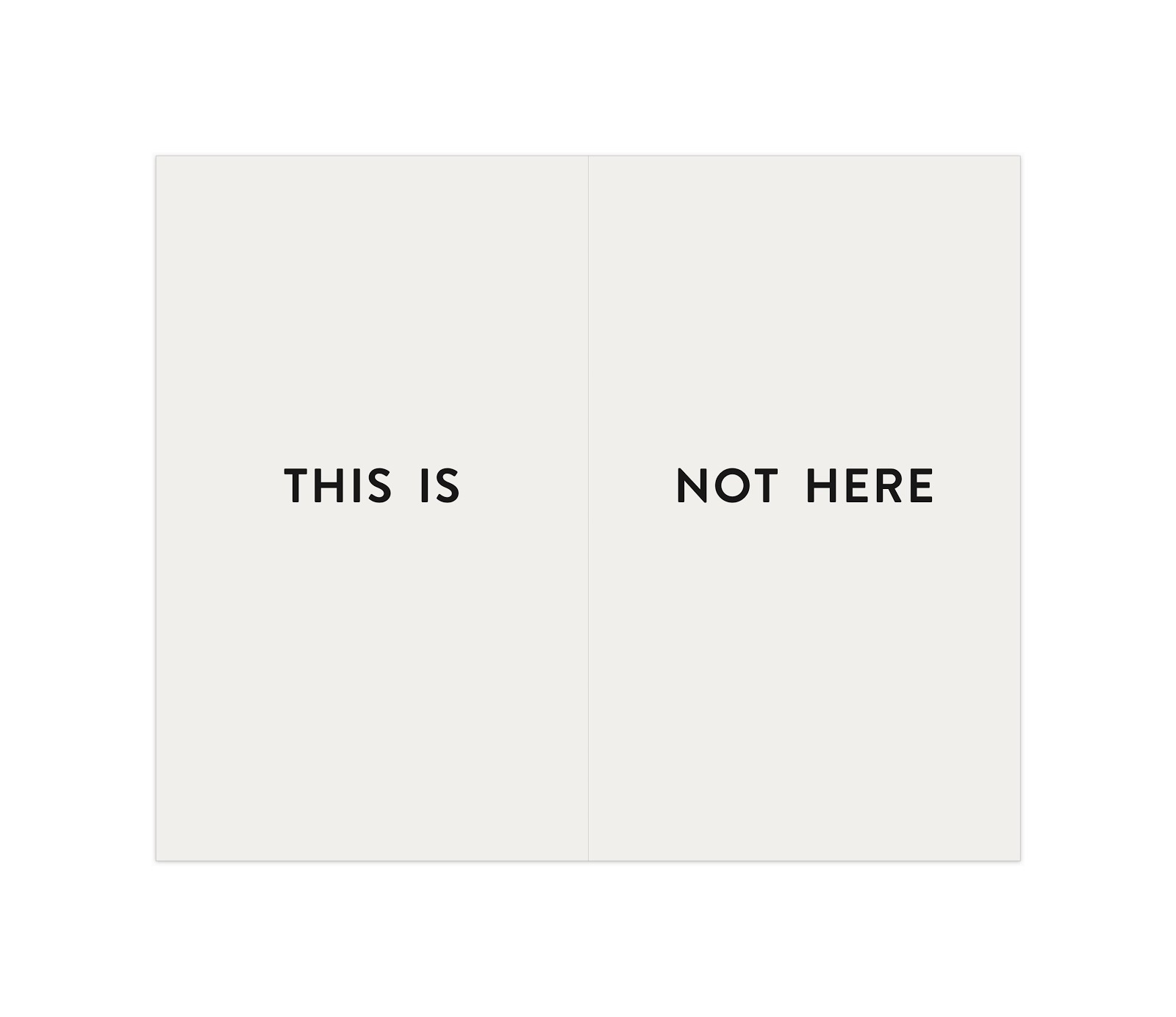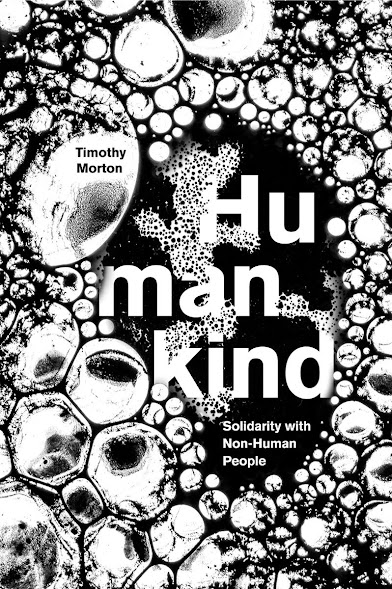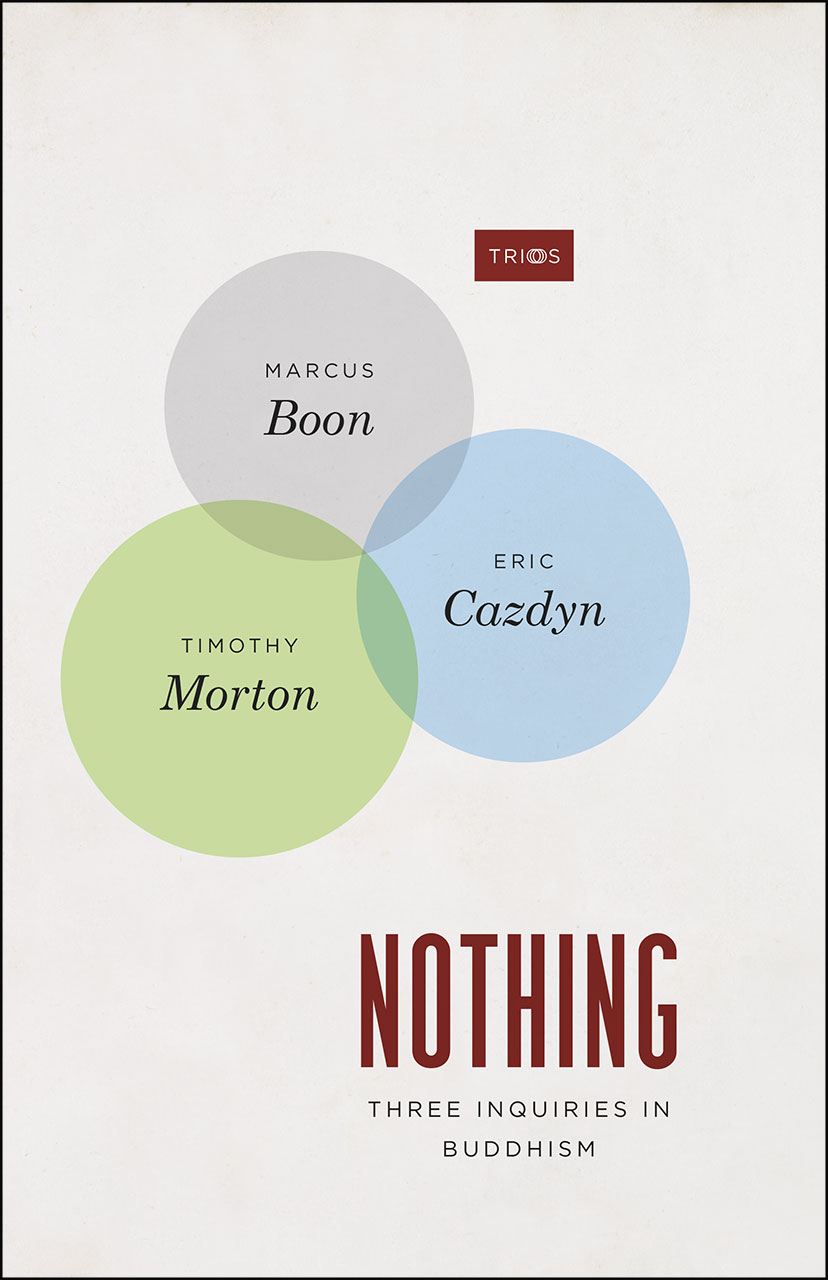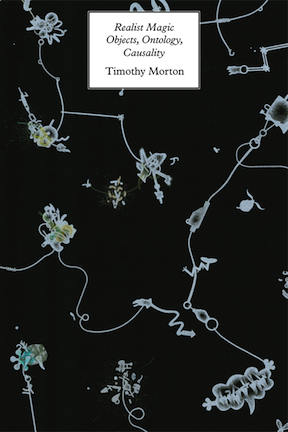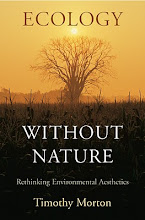It looks like I'm going to be publishing a collection of my essays on architecture. You heard it here first! There are perhaps a surprising number of them, going way back to the later 2000s. I'm very happy to be doing that as I'm teaching a bit at groovy Sci-Arc heading up a program called Synthetic Landscapes. (Our slogan: STOP MAKING SELFIES OUT OF NONHUMAN BEINGS.)
Tuesday, August 31, 2021
Book of Architecture Essays
Hyperobjects in Buddhist Door
I'm touched that they talked about my work.
Sunday, August 29, 2021
Reaction Reaction Reaction: It Was Too Progressive for the Guardian so I'm Posting It Here Instead, Part 3
(Scroll down for Parts 1 and 2)
9/11 is when most Americans suddenly realized that there was an outside. They really didn’t know. Actual thing said by my ex-mother in law, in 2006, on visiting London: “Wow, you have traffic lights too.” Totally sincerely. She meant it. It wasn’t a joke. She was genuinely amazed. She lived in Colorado. On September 11, 2001 the outside came crashing into two skyscrapers and Americans woke up from some of the dream, that had become strangely and quite wonderfully fin de siècle-ish under Clinton, and plunged into another one, orchestrated by Al Qaeda, whose explicit aim was to make America into a fascist country. I was so spooked by how quickly they came up with a name for an event which, in the memorable words of Fredric Jameson one week later in the London Review of Books, “hasn’t really happened yet.” A name that Al Qaeda must have wet themselves with delight at—the emergency call number they deliberately chose as the date for the attack on the Twin Towers. State of emergency. Habeas corpus suspended. I was on a green card and technically could’ve been rounded up without bail. They probably still can do that to people. See, it’s the 1790s.
I liked the Twin Towers. They were built when computers were really starting, when Derrida talked about them in the introduction to Of Grammatology. I thought the Twin Towers were a joke in binary. They looked so starkly like number ones. In binary, 11 means 3. Where is the third tower?
I arrived in the USA in 1992. America was like a marshmallow or a hamburger. So soft. So comfy. The nukes protected the marshmallow, or something. The USSR was gone. You could walk right to the gate to wait for your loved one. The idea that past security was No Man’s Land, which was legally correct, was not civil-society correct. At Heathrow Terminal 4 the United guy would interrogate you for ages, because of the IRA. But in America flying around from city to city on said United, you could trust your girlfriend to be waiting for you at the gate. “Keep me safe” is a thing children say to their parents. George Bush “kept us safe.” He said it over and over, because he hadn’t.
Bin Laden was some rich dude from Saudi, “in construction” as they say, like my girlfriend’s brother, or Donald Trump. It means corruptly connected to everyone and anyone. Bin Laden was in the Sudan. My girlfriend spoke Pashto and was negotiating with the Taliban and etc about that pipe. It was 1998. No one knows that, but I’m writing it here out of sheer frustration. Bin Laden didn’t just appear like some wizard played by Christopher Lee in a Tolkien film. Like some demonic version of Christ. How he was portrayed in the media. The Taliban were never a terrorist organization. The whole thing was shit.
The BBC was threatened with extinction when they questioned the bombing of Afghanistan. “Dresden-style” was the phrase one journalist used. The Labour Party, excited to win over thugs who would eventually vote for Brexit, and weirdly happy to be in charge in a moment when war might be on the cards, were outraged. I think the current corporate structure of the BBC can be traced to that moment. The compromise they made was, they were able to criticize Iraq, what a relief, but don’t lay a finger on Afghanistan. It’s all I can come up with to explain the outrageous failure of thought this last week. Please will someone start thinking, in public. Please, enough of the reacting. You have no idea how quickly the American Taliban will get back in power if this carries on.
Saturday, August 28, 2021
Reaction Reaction Reaction: It Was Too Progressive for the Guardian so I'm Posting It Here Instead, Part 2
(This continues the essay I started here)
I made a podcast about it. I never stop listening to the BBC, not ever. But I just can’t, not right now. So I ranted on to my followers. Here is a true story, which I told on my podcast. My girlfriend in the later 1990s was Afghani and she joined the CIA. Before that she had been in A&R in the music business, managing Henry Rollins, of all people, and several others. Such I guess are the vagaries of life. But yeah, there came this point at which she got her badge and security clearance and walked into the CIA and started to not tell me everything about her day.
The CIA were negotiating with Bin Laden since at least 1998. He wasn’t some kind of Saruman in a cave, weird how that movie came out right after 9/11 and Saruman was the spitting image (Lord of the Rings). He was in Sudan, mostly, and was a well-heeled Saudi. He had a past. He didn’t just materialize. He was as we know a CIA asset himself, from the days of the Soviet occupation.
The CIA was trying to help Unocal, a Californian oil corporation, which Al Gore had a huge stake in. Unocal wanted to put an oil pipe under the Caspian Sea. This required negotiating with everyone in Afghanistan. 9/11 happened because someone got pissed off, maybe they asked for too much money and the CIA said no, I have no idea.
It was all funded by heroin—the Taliban, the warlords, everyone. Afghanistan was basically like Tudor England or just before that. Just a bunch of insanely violent men ripping people apart, people tied between tanks that reversed away from one another, so I heard. Swap the sheep for opium and you have the same thing, primitive accumulation plus the Tower of London or the Taliban, whichever.
My girlfriend would call me about how many poppies there were over there. How many pipes they all smoked. Just decriminalize heroin. It’s better than drone strikes. The largest number of solar panels on the planet are owned by the Taliban to grow opium poppies. Papaver somniferum. We’ve been asleep at the wheel. “Just go shopping, relax, we will keep you safe.” That was the George Bush message, almost word for word. Take another Vicodin, I’ll make it great for you, again. That was the Trump version. Vicodin is an opioid. It turns into morphine in your body. Morphine is one of the most powerful active ingredient of opium. Heroin is the active ingredient of morphine. Also it’s the first brand name Bayer came up with, before they came up with Aspirin.
It’s all about consumerism. It’s all about the Romantic period. It’s all about…De Quincey.
No one is talking about George Bush. No one. And Obama’s main sin was, he should’ve held very public trials for all those torturers. And started a truth and reconciliation process. What a tragedy. Put a foot wrong, and you’re dead. That’s the horror of being Black in the USA. Of course he caved to the generals and did the “surge.”
I’m saying “of course” a lot. I can hear my D.Phil. supervisor telling me not to. Of course he would.
Friday, August 27, 2021
Reaction Reaction Reaction: It Was Too Progressive for the Guardian so I'm Posting It Here Instead, Part 1
I'm writing a book with Nicholas Royle, it's such an interesting project. And this is my latest installment for it. Nick thought it was so good that I should send it to the Guardian. But that was a few days ago when everyone in the media was going neocon insane. Probably even the Guardian. I didn't dare to look, ,as you will see. So a few days have gone by, and I'm pretty sure they still can't quite print it. So I'm putting it here instead. It's a few pages long so I'll post it in installments.
Reaction Reaction Reaction
Timothy Morton
I can’t listen to the radio. The Khyber Pass-ness of the way the BBC in particular is handling the exit from Afghanistan, the beyond fatuous editorials of John Soper, worst Washington correspondent ever. The Facebook and Twitter-initiated age of sensibility in which exactly the right opinion must be jumped to immediately. As if without mediation. I often feel we’ve been teetering on the edge of the Romantic period for two hundred and thirty years, since 1790 we’ve been teetering, and social media—which appeared just after 9/11 and appears to have installed at its heart that fact as an inviolable basis for its existence, isn’t helping, not at all.
People do die, hit by drone strikes at a wedding or falling off planes. By accident or on purpose, that’s the choice right now.
The media has loads of neocons on, the people who took us into Afghanistan. I think it’s to distract from the more serious issue—forgive my Wildean humor here—of how offended everyone is by images on their screens.
The reactive culture of sensibility meets the reactionary politics of Dick Cheney. Reactionary neocon responses to the withdrawal are just exactly that—reactive. They take 9/11 and Afghanistan as givens. And, I now realize, they always were. All that invading and bombing and imposing democracy on people looked for all the world like the acting-est actions ever. But they weren’t. 9/11 happened, then came the reaction.
The idea of a just war that at least was a feminist way of bombing the crap out of people, sustaining the illusion of British imperialism one more time, seems particularly acute on the BBC. I simply won’t listen. At least NPR is saying, wait. Give it some time.
My mum told me that when my grandfather went into Berlin, my communist grandfather, he was one of the first in Berlin, “liberating it” in 1945, many Germans behaved exactly like the Afghanis now. Desperately clinging, begging to be taken out of Germany. Of course. Everyone’s relative or neighbour is some kind of Nazi. Everyone’s brother is in or supports the Taliban. Of course everyone is terrified. Of course. There’s no way to get this right. I’m reminded of when I left ____. There was a moment when I actually had to physically leave. Things had been sort of kind of okay, but this was a moment that could not be okay. I remember saying, “I can’t make this part better for you, I can’t.” Couldn’t make it better for myself either. I had to make myself do it. It was right to do it. It felt so wrong. It was right. She tackled me to the ground. She broke my glasses. I had to keep on and on leaving. It took months. But it all started one night when I just…left. I went to stay at my new address, with a suitcase. It was either that or die or go insane, or both.
I actually admire Biden. He did a thing, and stuck by it. What to do, pull people out weeks ago and then the same things happen, only weeks ago. There’s no good time to do this. But it’s right. The whole thing was a total lie. Of course it’s going to seem wrong. My grandfather leaving Germans to die in Berlin. The instant opinionating is part of the violence. Of course the guy who exposes that it was a total lie is going to get in terrible trouble.
Wednesday, August 25, 2021
Three Thousand
Hyperobjects now has over 3000 thousand scholarly citations. It's the first of my books to do so! A few months ago, it crept past Ecology without Nature, which now has 2923 scholarly citations. It's been translated into four languages: Spanish, French, Japanese, Italian.
Monday, August 23, 2021
THE REMIX OF HEAVEN AND HELL
I Wrote a Book with Björk
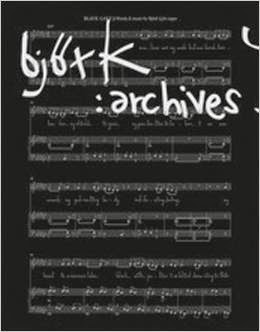
“A magical booklet of emails between Björk and philosopher Timothy Morton is a wild, wonderful conversation full of epiphanies and sympathies, incorporating Michael Jackson, daft goths and the vibration of subatomic particles in its dizzying leaps, alive with the thrill of falling in love with someone’s brain.” (Emily Mackay, NME)
WELLEK LECTURES
Timothy Morton
Timothy Morton is Rita Shea Guffey Chair in English at Rice University. They have collaborated with Laurie Anderson, Björk, Jennifer Walshe, Hrafnhildur Arnadottir, Sabrina Scott, Adam McKay, Jeff Bridges, Justin Guariglia, Olafur Eliasson, and Pharrell Williams. Morton co-wrote and appears in Living in the Future’s Past, a 2018 film about global warming with Jeff Bridges. They are the author of the libretto for the opera Time Time Time by Jennifer Walshe. Morton has written All Art Is Ecological (Penguin, 2021), Spacecraft (Bloomsbury, 2021), Being Ecological (Penguin, 2018), Humankind: Solidarity with Nonhuman People (Verso, 2017), Dark Ecology: For a Logic of Future Coexistence (Columbia, 2016), Nothing: Three Inquiries in Buddhism (Chicago, 2015), Hyperobjects: Philosophy and Ecology after the End of the World (Minnesota, 2013), Realist Magic: Objects, Ontology, Causality (Open Humanities, 2013), The Ecological Thought (Harvard, 2010), Ecology without Nature (Harvard, 2007), 8 other books and 250 essays on philosophy, ecology, literature, music, art, architecture, design and food. Morton’s work has been translated into 10 languages. In 2014 they gave the Wellek Lectures in Theory.
Comments
Translate
Search the Blog
Zermelo-Fraenkel Free Zone

—Slavoj Zizek, In Defense of Lost Causes
“Dark ecology has the potential to be the punk rock or experimental pop of ecological thinking.”
—Kasino A4
“It isn’t [nature] itself that needs trashing — we’re doing a fine job of that already; it’s our way of thinking about it that needs to be structurally realigned ... it's an important book that, in a scant 205 pages of main text ... frames a debate that no doubt will be carried on for years to come.”
—Vince Carducci, Pop Matters
“He practices what he theorizes: nothing is wasted in his argumentation.”
—Emmanouil Aretoulakis, Synthesis
—Vince Carducci
Blog Archive
-
▼
2021
(83)
-
▼
August
(12)
- Book of Architecture Essays
- Hyperobjects in Buddhist Door
- Reaction Reaction Reaction: It Was Too Progressive...
- Reaction Reaction Reaction: It Was Too Progressive...
- All Art Is Ecological Is Out and It's a Bestseller
- Reaction Reaction Reaction: It Was Too Progressive...
- Three Thousand
- This Really Is Nice
- So Copenhagen Put the Conference Online Only, but ...
- Statues and Interviews
- Yes, UK, You Should be "Treating" "Incels" "as a f...
- AMOR MUNDI
-
▼
August
(12)
CounterShareThis |

